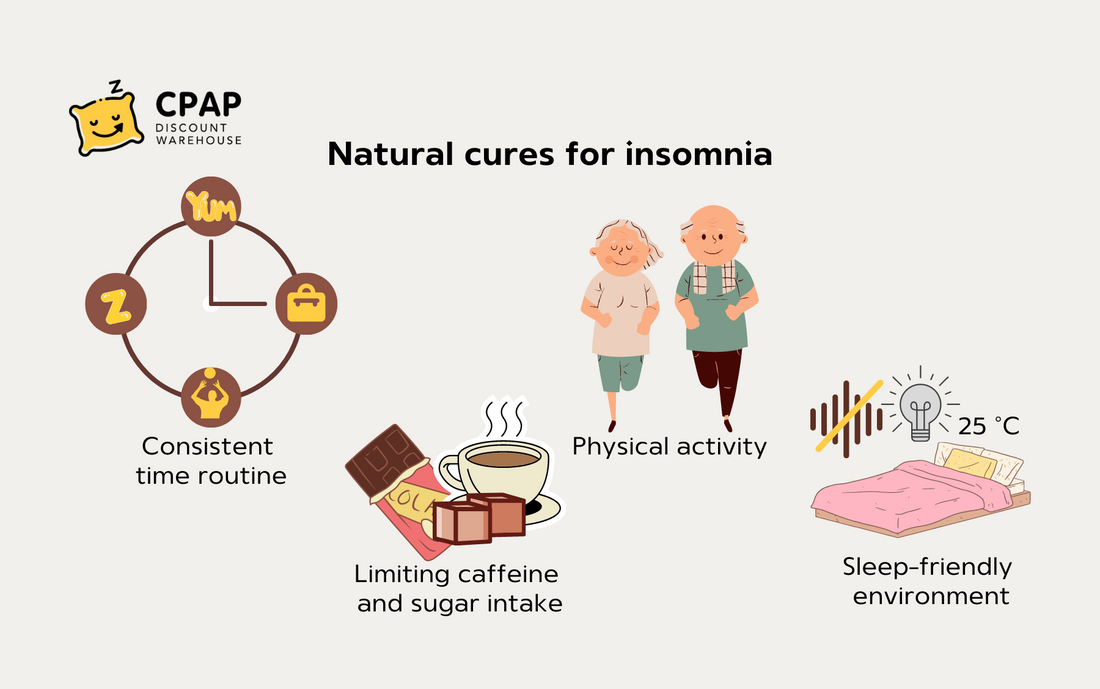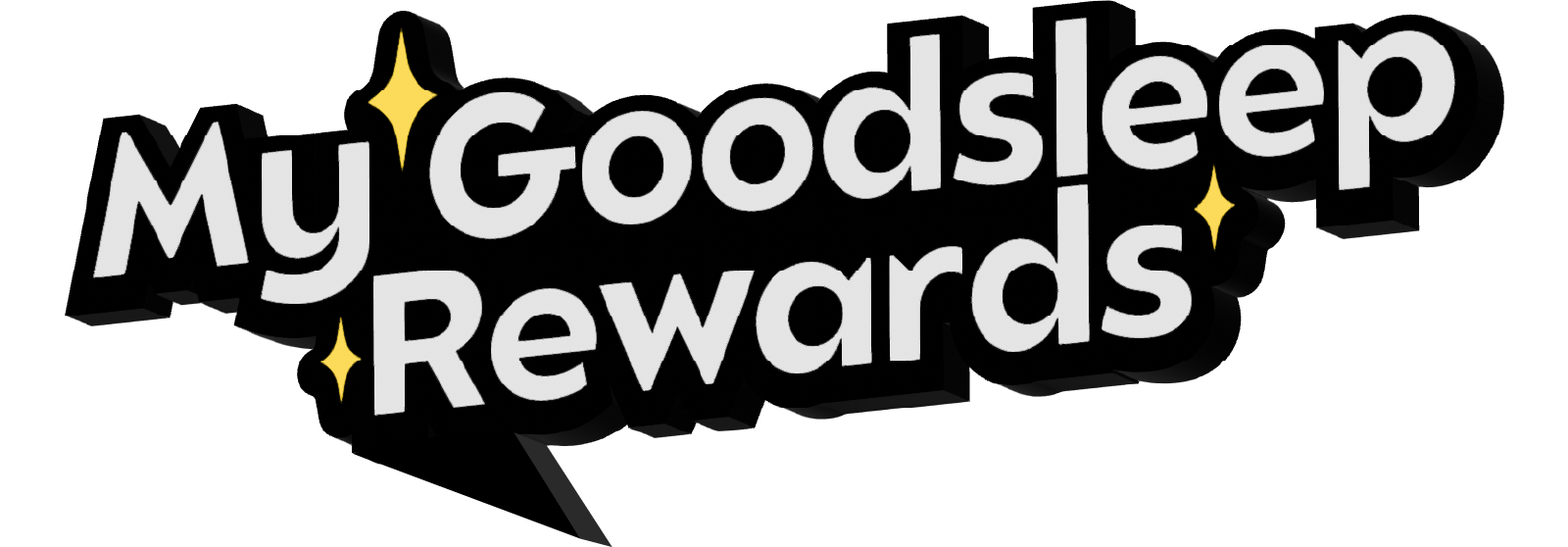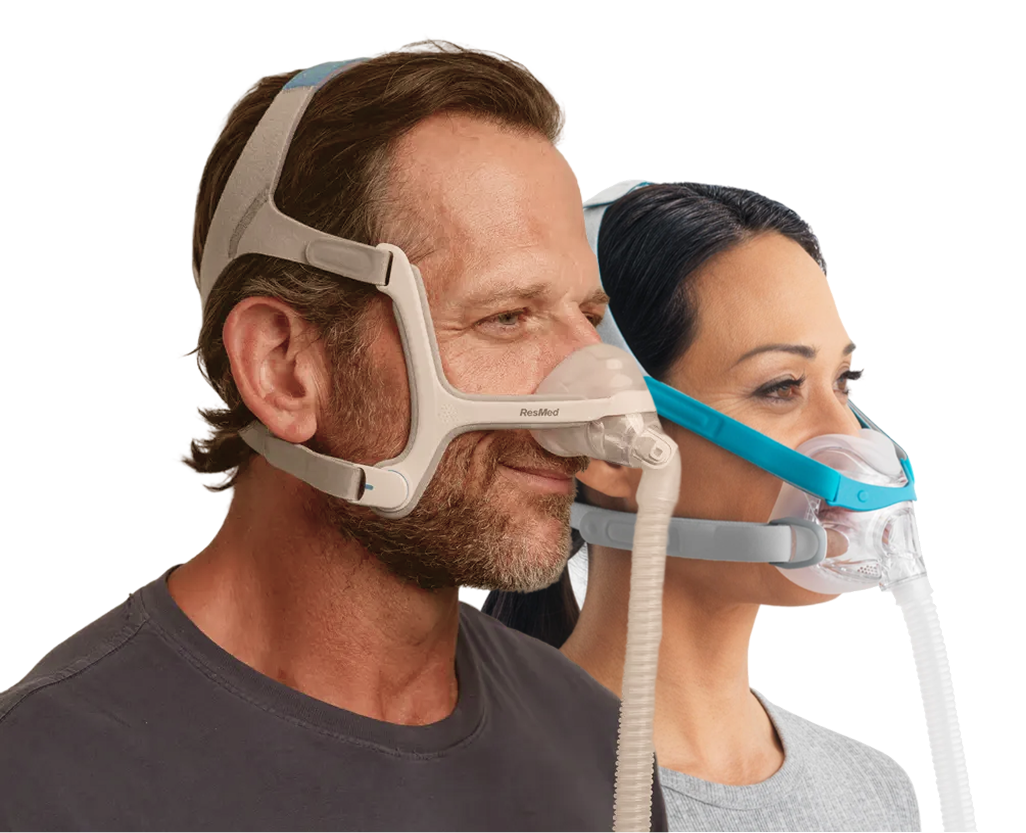Sleep is essential for overall health, yet millions of people struggle with sleep disorders that disrupt their well-being. Two of the most common and serious sleep disorders are sleep apnea and insomnia. While they may seem unrelated, these conditions often co-exist, making it difficult for individuals to achieve restful sleep. In this article, CPAP Disount Warehouse ’ll explore the causes, symptoms, and treatments for sleep apnea and insomnia, helping you understand how to manage these disorders effectively.
Understanding Sleep Apnea And Insomnia
Insomnia is a sleep disorder characterized by difficulty falling asleep, staying asleep, or waking up too early. People with insomnia often experience daytime fatigue, mood disturbances, and cognitive impairments. The underlying causes of insomnia can be varied, including stress, poor sleep habits, or mental health disorders.
Sleep apnea is a sleep disorder characterized by pauses in breathing or shallow breaths during sleep. These pauses can last from a few seconds to minutes and typically result in a loud snort or choking sound as the person resumes breathing. Sleep apnea can lead to poor sleep quality, daytime sleepiness, and even serious health complications if left untreated.

What is insomnia sleep disorder? Symptoms and causes
Sleep Apnea vs Insomnia
While Sleep Apnea And Insomnia are separate conditions, they can share some common symptoms of sleep disorders. This overlap can sometimes lead to misdiagnosis.
What are the symptoms?
One condition may cause or trigger the other. They can also make each other’s symptoms worse. In some cases, the two conditions occur separately and are not related. If you’ve been experiencing these symptoms for a while, then that’s a sign that something is definitely wrong.
Insomnia
+ Taking more than 30 minutes to fall asleep.
+ Waking up during the night and not being able to get back to sleep.
+ Broken or interrupted sleep.
Sleep apnea
+ Loud snoring.
+ Pauses or stops in breathing during sleep.
+ Morning headaches.
+ Having a dry mouth or a sore throat in the morning.
+ Sleeping on your side more than any other position.
Things get even more complicated because sleep disorders have similar symptoms. This makes it hard to figure out which one you have. Some of these commonalities such as sleep deprivation, excessive daytime sleepiness, irritability, cognitive decline, and even after sleeping a full night, you don't feel rested.

What causes each condition — can one cause the other?
While insomnia and sleep apnea arise from different causes, research in 2019 suggests that having one may increase the risk of developing the other, showing a possible link between these two sleep disorders.
Insomnia
+ Acute insomnia: stress or worry, shift work, irregular sleep schedule, poor sleep hygiene, caffeine or alcohol late in the day, new sleep environment, jet lag.
+ Chronic insomnia: back pain, GERD, anxiety, depression, diabetes, bipolar disorder, schizophrenia, hyperthyroidism, cardiovascular disease, menopause, arthritis, Alzheimer’s, Parkinson’s, cancer.
Sleep apnea
+ Main risk factor: obesity (also higher risk in older adults and men).
+ Obstructive sleep apnea (OSA): obesity hypoventilation syndrome, asthma, COPD, pulmonary fibrosis, hypothyroidism, acromegaly, stroke, heart or kidney failure, PCOS, pregnancy.
+ Central sleep apnea (CSA): opioid use, abnormal breathing patterns, Parkinson’s disease, osteoarthritis, cervical spondylosis, stroke, heart failure or heart attack, encephalitis.
Shared risk factors for insomnia and sleep apnea include obesity, related health conditions, and hormonal or endocrine imbalances.
How is diagnosed?
Many individuals with sleep apnea also experience insomnia, a condition known as "co-morbid insomnia and sleep apnea (COMISA)." This makes treatment more challenging because one condition can worsen the other.
+ People with sleep apnea may develop insomnia due to frequent nighttime awakenings.
+ Insomnia sufferers may develop sleep apnea due to poor sleep regulation and breathing instability.
If untreated, both disorders can significantly increase the risk of cardiovascular disease, cognitive decline, and mental health issues. Since sleep apnea and insomnia share overlapping symptoms, a comprehensive sleep study is often necessary to identify the root cause of sleep disturbances.
Sleep Studies and Evaluations
To diagnose sleep apnea or insomnia, a doctor may recommend:
+ Polysomnography (PSG): is an overnight sleep test that monitors brain waves, oxygen levels, heart rate, and breathing patterns.
+ Home Sleep Apnea Test (HSAT): is a more convenient, at-home alternative to detect apnea episodes.
Questionnaires and Screening Tools
Sleep specialists may also use:
+ STOP-BANG Questionnaire screening tool for sleep apnea risk.
+ Insomnia Severity Index (ISI) – A self-assessment tool for evaluating insomnia symptoms.
Sleep apnea and insomnia treatment
Sleep Apnea
+ Continuous Positive Airway Pressure (CPAP) Therapy: It's a machine that delivers air pressure to keep the airway open.
+ Oral Appliances: is a dental devices that adjust jaw position to prevent airway collapse.
+ Lifestyle Changes such as weight loss, quitting smoking, and reducing alcohol consumption can help.
+ Surgery: In severe cases, procedures like uvulopalatopharyngoplasty (UPPP) or hypoglossal nerve stimulation may be needed.
Insomnia
+ Cognitive Behavioral Therapy for Insomnia (CBT-I) – A structured therapy program that helps patients change negative sleep behaviors.
+ Medications – Short-term use of sleep aids may be prescribed, but they are not a long-term solution.
+ Relaxation Techniques – Meditation, breathing exercises, and progressive muscle relaxation can improve sleep quality.
+ Sleep hygiene improvements, including establishing a consistent sleep schedule, creating a comfortable sleep environment, and avoiding stimulants before bedtime.
For individuals experiencing both sleep apnea and insomnia, a combined approach, such as CPAP therapy along with CBT-I, is often the most effective treatment.
Sleep Disorders: Types, Symptoms, Causes and Treatments

When to Seek Professional Help?
Knowing when to seek medical help for sleep problems is important for your health. If you often feel tired during the day despite getting enough sleep or struggle with mood issues like anxiety or depression, you might have a sleep disorder. Left untreated, sleep problems can also lead to high blood pressure and other heart-related issues.
If you think you have sleep apnea or chronic insomnia, it's best to see a specialist. A sleep expert can assess your condition, while a therapist trained in CBT-I can help with mental and behavioral sleep challenges. Seeking treatment can greatly improve your sleep and overall well-being.
Conclusion
Confusing insomnia with sleep apnea can delay the right treatment and harm your health. Understanding the link between these conditions and getting professional help ensures an accurate diagnosis and proper care. Prioritize your sleep health today with www.cpapdiscount.au and enjoy the life-changing benefits of better sleep.






